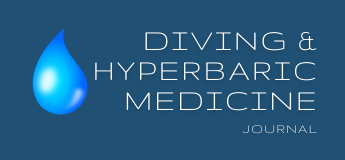Chris developed an early passion for sailing and other water sports in the waters around Auckland and completed his scuba training while at the University of Auckland Medical School. After spending several years as a solo GP he joined the Royal New Zealand Navy as a medical officer to gain experience in occupational medicine, and specifically, diving and hyperbaric medicine. Naval service included being sole medical officer aboard the frigate HMNZS Canterbury during the East Timor crisis in 1999.
After an initial degree in chemistry, Chris completed his medical training followed eventually by his Masters and Doctoral degrees all at the University of Auckland. Because of New Zealand’s unique centrally-audited occupational diver certification system, Chris has been able to use the large volume of stored diver health data to study the long-term effect of diving on lung function and hearing and also assess the value of routine medical examinations in determining fitness to dive. These studies were the foundation for his masters and doctoral theses, and have led to significant evidence-based changes to the certification and health surveillance of professional divers.
For the past 20 years Chris has been the clinical director of the Devonport-based hyperbaric unit which is now owned and operated, not by the Navy, but by the public health system, now called Health New Zealand/Te Whatu Ora. He is a full-time clinician, but still teaches final year nursing and medical students. In his spare time he likes to dabble in art and music.
